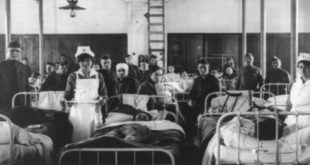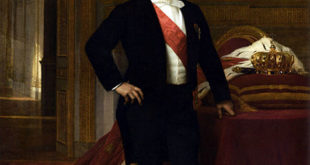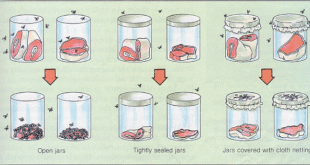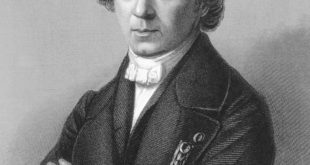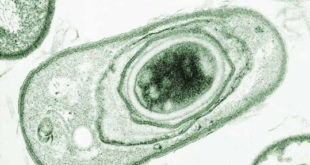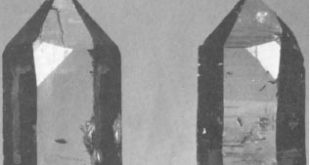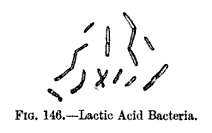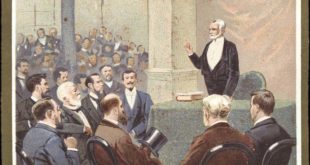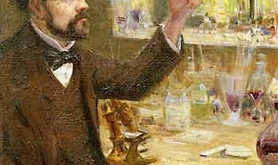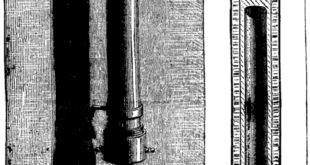One of the most common occupations in health care is the registered nurse. Registered nurses provide a wide variety of services to patients. They also work very closely with other medical professionals to diagnose patients and assist with treatment. Many of the discoveries of Louis Pasteur related to disease and germ theory revolutionized the nursing and surgical occupations. 19th Century …
Read More »Articles
Louis Pasteur, Wine Disease and Napoleon
For some time during the 19th century, the French wine industry was burdened by different diseases that caused wine to become sour, bitter or flavorless. Knowledge of French wine diseases spread throughout Europe, greatly damaging the wine export sector in France. An English merchant said this just after the treaty agreement between France and Great Britain in 1863: In the …
Read More »The Question of Spontaneous Generation
From Louis Pasteur: His Life and Labours by René Vallery-Radot, 1885 ‘All dry bodies,’ said Aristotle, ‘which become damp, and all damp bodies which are dried, engender animal life.’ Bees, according to Virgil, are produced from the corrupted entrails of a young bull. At the time of Louis XIV, we were hardly more advanced. A celebrated alchemist doctor, Van Helmont, …
Read More »Organic Chemistry and the Idea of the Molecule
Originally published in Modern Development of the Chemical and Biological Sciences Vol. 4 in 1904. When Berzelius first promulgated his binary theory he was careful to restrict its unmodified application to the compounds of the inorganic world. At that time, and for a long time thereafter, it was supposed that substances of organic nature had some properties that kept them …
Read More »Germ Theory of Disease
Originally published at AnimalResearch.Info Proving the germ theory of disease was the crowning achievement of the French scientist Louis Pasteur. He was not the first to propose that diseases were caused by microscopic organisms, but the view was controversial in the 19th century, and opposed the accepted theory of “spontaneous generation”. Pasteur set out to understand the fermentation process, and …
Read More »The Asymmetry of Naturally Occurring Organic Compounds
Two lectures delivered by Louis Pasteur before the Chemical Society of Paris, on January 20, and February 3, 1860. FIRST LECTURE AT the end of the year 1808 Mains discovered that light which was reflected from opaque or transparent bodies possessed new and surprising properties, which distinguished it from the light that proceeded directly from illuminating bodies. Malus called the …
Read More »Pasteur’s Study of Fermentation
Louis Pasteur first devoted himself to the study of fermentation in 1856, when he is approached by M. Bigo, a local industrialist in Lille, and asked for advice concerning the production of alcohol in beet juice. Apparently Bigo was experiencing large vats of beet juice turning sour instead of alcoholic as expected. Pasteur agreed to help with the problem and …
Read More »Spontaneous Generation and Pasteur’s Experiments
In the nineteenth century, people believed that organisms could arise spontaneously from their environment, without the presence of any preexisting organisms. After a nutrient broth is sterilized by boiling, and then exposed to air for a few days, a sample can be removed from the flask and transferred to a plate containing a solid medium. Within a few hours, the …
Read More »Humanity’s Debt to Pasteur
BY H. MACNAUGHTON-JONES, M.D., M.A.O., F.R.C.S.I., AND ED. (Ex University Professor in the Queen’s University, Ireland) It is rather a daring undertaking to attempt to show in the short time at my disposal how much the world in general, and my profession in particular, is indebted to the genius and work of Pasteur. Also, it may seem presumptuous at this …
Read More »The Pasteur-Chamberland Filter
Originally published in The British Medical Journal on March 6, 1886. Sir, In the Journal of February 27th, appeared a short article giving an account of the results obtained by Horn, working under the direction of Professor FOrster, of Amsterdam, with the Pasteur-Chamberland filter. As the reader might gather from the concluding lines of your article, that some difficulties attend …
Read More » Pasteur Brewing Louis Pasteur – Science, Health, and Brewing
Pasteur Brewing Louis Pasteur – Science, Health, and Brewing 